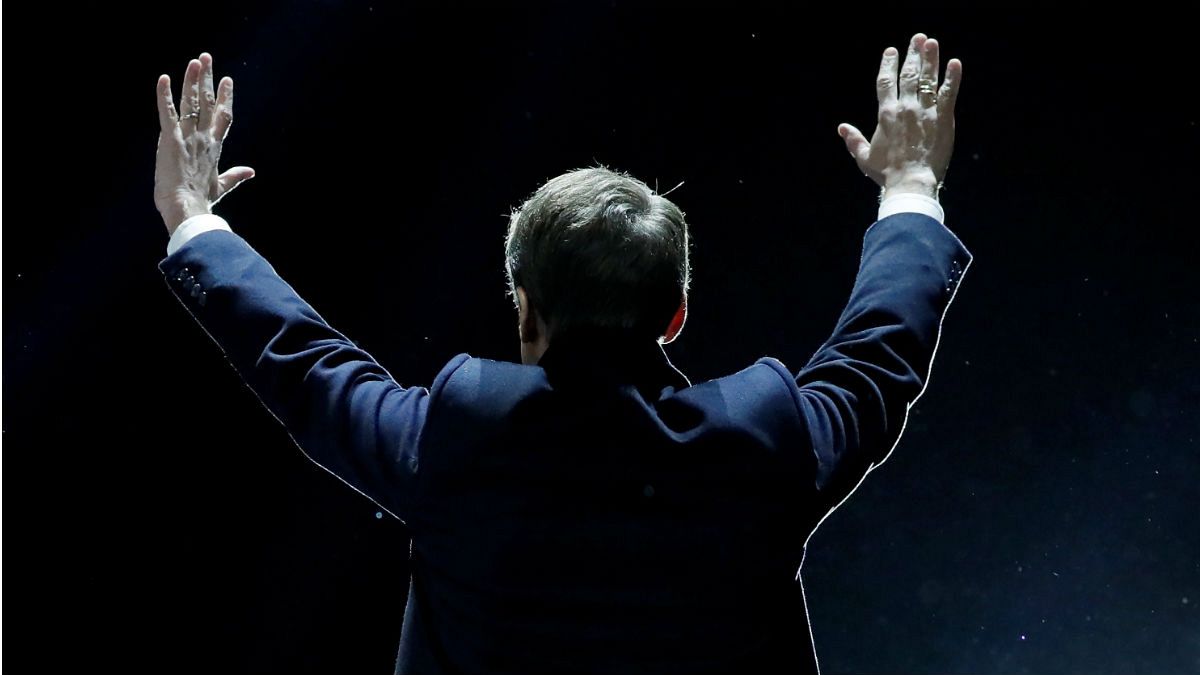As the eighth president of France's Fifth Republic, Macron has weeks before taking the reins of government and engineering a parliamentary majority.
Dust has barely had time to settle on France’s tumultuous presidential campaign than pollsters are already looking at what could be President Emmanuel Macron’s first significant political challenge – June’s legislative elections.
Macron, elected as the eighth president of France’s Fifth Republic, has just weeks to go before taking the reins of government and engineering a parliamentary majority in the National Assembly.
He is expected to meet stiff resistance from the National Front, led by defeated second-round presidential candidate Marine Le Pen, and the Republicans party.
Macron’s En Marche! is so far projected to win at least 24 percent of first-round votes in France’s lower house, according to a poll by Kantar, with the Republicans and National Front receiving 22 and 21 percent respectively.
In another poll, by Harris International, Macron is seen tied at 22 percent with the National Front. Le Pen vowed Sunday evening the National Front will take the mantle of France’s first opposition party.
Nous devons bâtir une majorité présidentielle large et cohérente à l'Assemblée.Le temps est au dépassement et à la clarté pour réussir.
— Manuel Valls (@manuelvalls) May 7, 2017
Just minutes after preliminary results showed Macron winning the election, former Socialist Prime Minister Manuel Valls called for broad parliamentary majority to support the incoming president.
His call came amid a flurry of aggressive posturing within some political and unionist circles. Their opposition to Macron could set the tone for his early presidency and possibly complicate his push to unite the country.
Former far-left presidential candidate Jean-Luc Melenchon said he believed Macron would destroy France’s social system and called on his supporters to mobilise against him ahead of the parliamentary elections.
He was joined by conservative leader Francois Baroin who said he would oppose Macron in next month’s contest.
France’s CGT union called for demonstrations against Macron starting May 8, to mark the start of his presidency.
Some expect Macron may be up to the challenge, however, predicting his nascent political movement could take between 249 and 286 seats.
289 seats are needed for an absolute majority.
But to get that majority, Macron must first go throughout a quick round of protocol.
After France’s Constitutional Council confirms the tally of Sunday’s presidential election on May 10, Macron will be sworn in as President in the Elysee Palace.
Although no date has been set, Macron could be sworn in as soon as May 14.
He will then set to the task of naming France’s next Prime Minister, a future appointment that has sparked a wave of political speculation within the country.
Whoever he appoints as Prime Minister will be in charge of building the cabinet and responsible for En Marche!‘s push on the National Assembly.
So far Macron has not revealed who he is considering, but earlier this week indicated he had narrowed the list of prospects to a man and womanreported Le Monde newspaper.
Le Figaro conducted an internal poll among its journalists who they thought Macron would consider. The list they came up with includes the names of Francois Bayrou, a centrist who ran for president three times between 2002 and 2012, Jean-Yves Le Drian, a Socialist who has served as President Francois Hollande’s Defence Minister and current IMF chief Christine Lagarde.
Nos candidats seront choisis en fonction de 5 critères. #LaMajoritéEnMarchepic.twitter.com/0ah8b7vo5Z
— Emmanuel Macron (@EmmanuelMacron) January 19, 2017
Shortly thereafter, however, candidates from all parties will announce their intentions for the 577-seat National Assembly.
By the end of May, campaigning will be in full swing with voters once again casting their ballots on June 11.
